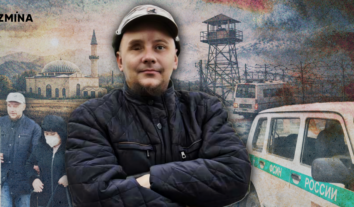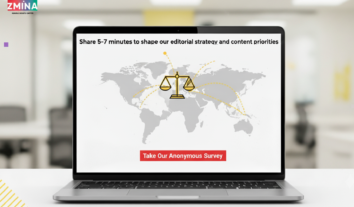Is it end of frank pledge? Judges give evidence of pressure in Maidan cases
“They said that if it was difficult to consider this protocol for me, then my work would be ‘eased’ at the general meeting of judges on Tuesday.” Judge of the Shevchenkivsky District Court in Kyiv Iryna Makarenko reports on pressure exerted by the court leadership in the Automaidan cases.
The judges have just begun to talk about incidents of pressure along with the lawyers and human rights defenders. It turned out that the administration of ex-president Viktor Yanukovych tried to influence the judges so that they deliver the harshest and the quickest judgments against the Automaidan activists.
The information is provided by the judges themselves and the members of the Attorney’s Advisory Group, involved in the investigation into the Maidan events, particularly the harassment of the Automaidan activists.
The evidence, obtained within criminal proceedings, and the operational information indicates that the authorities could influence the judges making them deliver unlawful judgments.
Lawyer Roman Maselko, who has been defending the Automaidan activists from the very beginning, says that there were even cases when the activists, who had not been present in the specified location at that time, were held liable.
The activists were massively deprived of driver’s license and fined, in particular, for a trip to Mezhyhirya, the residence of Viktor Yanukovych. The evidence and documents, provided by lawyers, were not accepted in the courts, while the courts delivered the gravest possible punishment based on falsified evidence.
The lawyers suspected that the judges had been given instructions, but it was difficult to prove that. However, certain materials do exist, in particular those Maselko unveiled at the XIII congress of judges.
“Mamontova case”
First of all, there is the testimony of former head of the Obolonsky District Court in Kyiv Iryna Mamontova, who is now the member of the High Council of Justice. According to her, from late December 2013, the court started to accept the bulk of materials on violations of traffic rules (Article 122-2 of the Administrative Code of Ukraine) though the materials over this article came very rarely before and after that time.
Roman Maselko cites the testimony of Iryna Mamontova: “At the end of December 2013, I got a call from a representative of the Presidential Administration of Ukraine. The man said that the protocols on administrative violations should be registered and considered as soon as possible. He added that, taking into account the situation in the country, it was necessary to choose the maximum possible penalty for the offenders.”
According to the judge, she realized that those cases caused increased attention of the state leadership. However, Mamontova gave no instructions to the Obolonsky District Court judges and did not influence the decision-making in those cases, she did not even mention that she had received such calls.
After the New Year holidays, the representatives of the Presidential Administration (PA) called again and demanded that the protocols on administrative violations were considered more quickly. January 17, 2014, the judges ruled to appoint fines over several cases. On the same day in the afternoon, as Iryna Mamontova says, the PA officials called again, “During the conversation, they expressed dissatisfaction with such penalties and stated that such judgments were contrary to the interests of the state. I replied that I could not influence the decisions, made by the judges. In response, I was told that I could not properly organize the work of the court and that it was necessary to appoint certain judges to consider that category of cases.”
January 20, she was told that the leadership was not satisfied with her work. Iryna Mamontova resigned in response. February 11, 2014, the High Council of Justice approved the decision to dismiss Mamontova from the post.
“It is established that in that period Mamontova received calls from a phone that belonged to Fesenko Vadym Ivanovych, who had been head of the judicial department of the Presidential Administration from January 1, 2013,” Roman Maselko said.
Judgments to order
Iryna Makarenko, the judge of the Shevchenkivsky District Court of Kyiv, tells about another similar story.
She was surprised when she got the case concerning the Automaidan as the materials had no explanations of the offender. Although, Article 122-2 of the Administrative Code of Ukraine stipulates stop of the vehicle and making protocol in the presence of the offender. The judge was also warned that the case should be considered very quickly. The offender was an elderly woman who, as it turned out, had not used the vehicle and the car was only registered on her name. Her son, who used the car, also was not present at the appointed place at that time.
However, the head of the Court and his deputy, according to Iryna Makarenko, began to prove that the available materials were enough to deliver the prompt judgment – deprivation of driving license for a maximum period.
Judge Makarenko notes, “At first I said that I would send this material for final drafting as there was no explanation of the offender. They told me that I must not even think about it. They told that if it was difficult to consider this protocol for me, then my work would be ‘eased’ at the general meeting of judges on Tuesday.”
“To ease the work” meant to change the specialization of the judge by “suggesting” her considering the cases over debt collection and social benefits. This is routine work with almost identical circumstances, which does not require high skills and is offensive for an experienced judge.
Iryna Makarenko eventually closed the proceedings for lack of components of the administrative offense. However, any measures of pressure were not applied against her, probably because, she says, the Revolution of Dignity started, which shook the situation and diverted attention.
Openness as protection from lynch law
In fact, 8,000 judges working in the judicial system are now hostages of 200-300 judges, against whom there are complaints about the investigation into the Automaidan events. This is noted by Volodymyr Kravchuk, the judge of the Lviv District Administrative Court, former candidate for the Constitutional Court judge.
However, every judge should reveal his independence while delivering judgments, if he or she is a professional.
“Every judge delivers judgment in the name of Ukraine. He alone decides what this decision should be. And indeed, one had the courage to show their independence and say ‘No’, and others lacked that courage. It is not a question of law. This is professional issue. This issue of the ability to bear the burden of independence.”
Kravchuk reminds that the independence of the court is not just the set of safeguards, set of tools. It is the requirement. The Court cannot decide whether to be independent or not, it must be such.
“And if in such a critical situation a judge breaks down, or even worse – cave into someone’s needs that have nothing in common with the law – then a judge is professionally unqualified by his moral and ethical professional component. Such a judge cannot be a judge no matter how brilliant she or he is in terms of knowledge of the law,” Volodymyr Kravchuk argues.
The lawyers claim that those bodies, which have the powers to “judge” the judges, particularly the High Qualification Commission of Judges, the Ad Hoc Investigation Commission and the High Council of Justice, need to intensify their activities. This is important not only for fair proceedings into the Automaidan cases but also for the improvement of the judicial system as a whole.
Roman Maselko still names a positive moment in the judicial system recovery.
It is nearly the first time when not just lawyers and human rights activists tell journalists about the abuses in the judicial system. The judges themselves give evidence! The judges who dared to give evidence about the influence of top officials in high profile cases. However, the number of such “bravehearts” is too small, much smaller than reports on pressure.
Oleksiy Hrytsenko, the All-Ukrainian NGO “Automaidan” activist, says that if a judge or a prosecutor is afraid to give evidence today, then the lynch law will sooner or later start in the judicial system and the prosecutor’s offices. Finally, it may result in the continuation of the revolution as every revolution aims to change the system, “Now you can lose more while being afraid of some pressure, loss of money or work. We must understand that the consequences will be much worse. It is necessary to change the system. There will be no confidence in it till we see qualitative changes.”
Oleksiy Hrytsenko claims that the judges, who are ready to give evidence, should opt for freedom, choosing between safety and freedom, as safety will follow their choice. The Automaidan movement, in turn, promises to help judges, who will dare to give evidence. In particular, it refers to legal support, making cases public, as well as physical safety.














